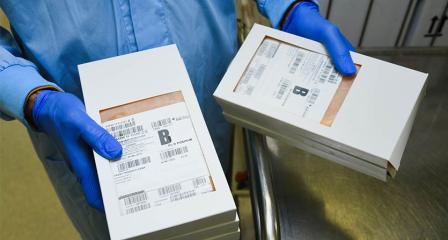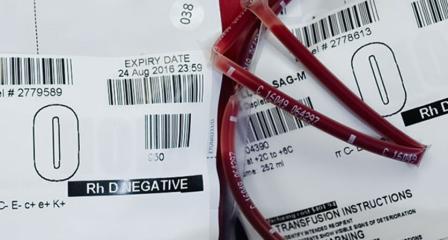
Connect with Dr Hirani
Rena's work analyses how blood components are used in hospitals with the aim of providing a better understanding of blood component usage and safety and improving outcomes for transfusion patients. She also works in large collaborative teams to provide data to Australian Governments on the spread of COVID-19 and other diseases which impact the Australian community.
Rena received her PhD in biochemistry and molecular biology from the University of Adelaide. Before joining Lifeblood, she worked as a Postdoctoral Fellow designing DNA nanomachines for point-of-care diagnosis and in developmental biology.
Awards
- Lifeblood CEO award (2023)
- Top 10 manuscript in The Medical Journal of Australia in 2022 (2023)
- Associate Investigator for NHMRC partnership grant (2023)
- Awarded a CSL Behring Travel Grant (2022)
- UNSW Founders’ Health 10X program invitation (2020)
Leadership
- PhD student supervisor
- STEM outreach via national media, public seminars, student letter exchanges and mentorship
- Editor for PLOS ONE
- Peer-reviewer for numerous journals and conferences
- Examiner for student theses, Dean’s awards and Masters programs
Key publications
The distribution of ABO RhD blood groups in Australia, based on blood donor and blood sample pathology data.
2022
The Medical Journal of Australia
216 (6): 291-295.
Emerging Microfluidic Devices for Sample Preparation of Undiluted Whole Blood to Enable the Detection of Biomarkers
2023
ACS Sensors
8: 1404-1421
Association between Blood Donor Demographics and Post-Injury Multiple Organ Failure after Polytrauma.
2023
Annals of Surgery
277: e170-e174
Seroprevalence of Japanese encephalitis virus-specific antibodies in Australia following novel epidemic spread: protocol for a national cross-sectional study
2024
BMJ Open
14:e075569
Prevalence of donor white blood cell survival (Transfusion-Associated Microchimerism) in a cohort of older Australians
2025
Transfusion and Apheresis Science
64(3):104129

